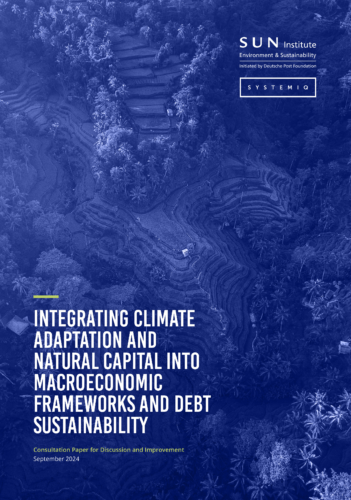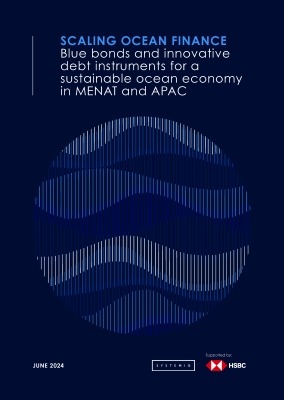Many emerging markets and developing economies (EMDEs) are on the frontlines of climate change and nature loss, suffering disproportionately from extreme weather and degraded ecosystems. Over the last 20 years, these countries have lost a staggering $525 billion to extreme weather events — about 20% of their combined GDP. The destruction of nature undermines essential ecosystem services like agriculture, storm protection, and carbon capture, which are critical for human wellbeing.
This paper highlights that climate change and nature loss have macroeconomic implications.
It argues that – while the IMF is starting to pay greater attention to climate change, including in its baseline GDP growth forecasts and the Debt Sustainability Analysis (DSA) – the world’s premier macroeconomic institution can adopt a more comprehensive approach to these issues.
The IMF must systematically assess the implications of climate and nature risks, as well as investments in resilience, for all countries – this includes market-access countries, many of which are just as climate-vulnerable as low-income countries.
It must recognise that investment in natural capital is a critical adaptation strategy – particularly for nature-rich EMDEs that can substitute nature-based solutions for more costly physical infrastructure (e.g. mangroves for storm protection instead of concrete seawalls).
This isn’t just about getting the technical details right; it’s about climate justice. As called for by the Bridgetown Initiative, EMDEs must not be punished for the higher climate risks that some bear. The IMF must acknowledge the disproportionate impact faced by vulnerable countries and support more financing on better terms, enabling these countries to build resilience without adding to unsustainable debt burdens. It is time for macroeconomics to fully embrace climate science. Climate adaptation must be a priority not only for environment ministers but also for finance ministers.




